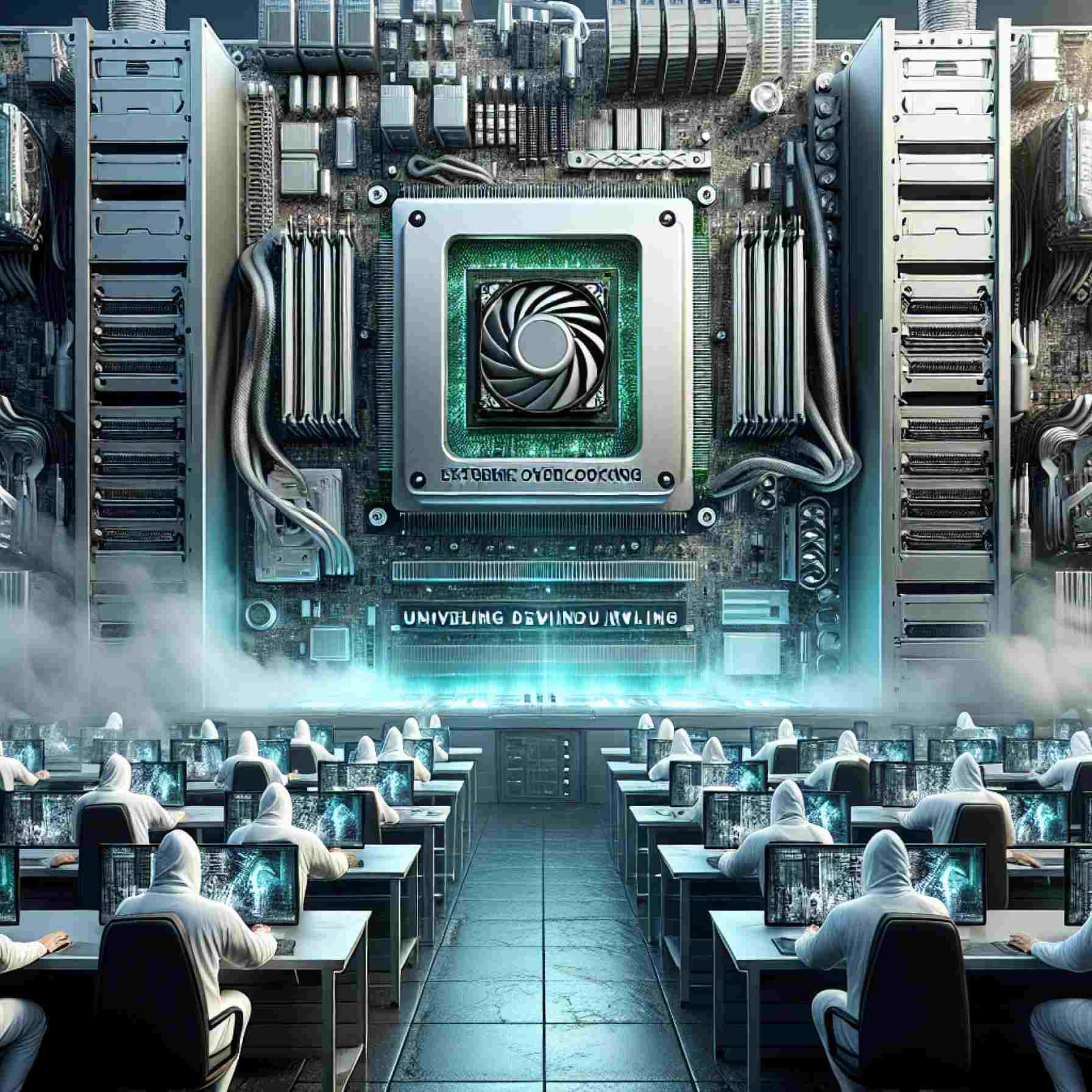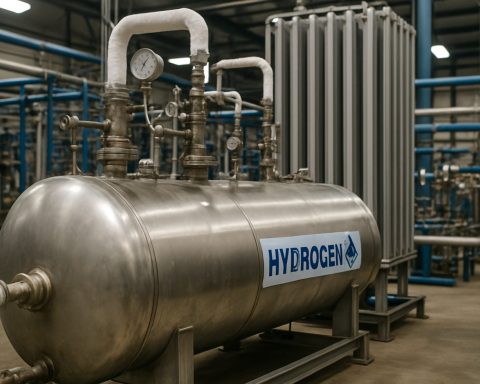- Extreme overclocking transforms ordinary silicon chips into high-performance engines, pushing computing limits.
- Enthusiasts like der8auer document this process, revealing the intricate art of turning raw components into technological masterpieces.
- With liquid nitrogen and meticulously configured motherboards, performance reaches science fiction levels.
- A passionate community of enthusiasts fosters innovation, paving the way for advancements in consumer electronics and commercial computing.
- The practice symbolizes pushing beyond boundaries and encourages exploration, creativity, and human ingenuity.
- The overclocking universe promises potential discovery for both veteran tech enthusiasts and curious newcomers.
Underneath the polished surface of our everyday devices lies an uncharted realm where technology enthusiasts push the boundaries of what’s possible. This is the world championed by enthusiasts and leaders like der8auer, whose YouTube channel chronicles the intricate art of extreme overclocking.
Imagine computers so powerful, their performance would seem more suited to science fiction than reality. Overclocking takes the ordinary capabilities of silicon chips and transforms them into supercharged engines, capable of tackling complex calculations at unprecedented speeds.
The allure lies in the remarkable transformation achieved with each adjustment, turning raw components into high-performance masterpieces. Walk into this scene, and you find motherboards meticulously configured, processors chilled to subzero temperatures with liquid nitrogen, and complex calculations unfolding at lightning speeds.
Enthusiasts linger in forums and meetups, exchanging insights and breakthroughs, all fostering a vibrant community that thrives on shared passion and collective expertise. This network of knowledge not only fuels innovation but also forms the backbone of the latest technological advancements found in consumer electronics and commercial computing.
Through der8auer’s lens, the universe of extreme overclocking unfolds with breathtaking clarity. He explores this digital terrain with a relentless drive, capturing the exhilarating moments as processors defy expectations and outperform defined benchmarks. Each venture into overclocking is a testament to engineering marvel, where art, science, and technology converge.
The takeaway is this: technology is not just for consumption; it is an evolving frontier ripe for exploration and creativity. Overclocking stands as a metaphor for pushing beyond perceived boundaries, a beacon of human ingenuity that urges us to stretch our imaginations and redefine what is possible.
Whether you’re a veteran tech enthusiast or simply someone with a latent curiosity, the realm of overclocking holds the promise of discovery and innovation. Here lies a universe of untapped potential, one where each milestone achieved encourages the next generation of pioneers to venture further.
Unleashing the Power Within: The Intricate Art and Science of Overclocking
What is Overclocking?
Overclocking is the practice of increasing the clock rate of a computer’s processor beyond the manufacturer’s specified limit. This can apply to GPUs (graphics processing units) as well, allowing for enhanced performance in gaming and computing tasks. By increasing the clock rate, enthusiasts can achieve higher speeds and improved performance, often at the cost of higher power consumption and heat generation.
Key Components in Overclocking
1. Processors (CPUs and GPUs): The heart of overclocking lies in the central processing unit (CPU) and graphics processing unit (GPU). Enthusiasts select processors known for their ability to handle increased speeds, like AMD’s Ryzen series or Intel’s unlocked ‘K’ series.
2. Cooling Systems: Overclocking generates extra heat, so enhanced cooling is essential. Liquid nitrogen (LN2) and water cooling systems are popular for their efficiency and ability to keep temperature-sensitive components cool.
3. Motherboards: The motherboard must support changes in voltage and clock speeds. Models from ASUS, Gigabyte, and MSI are favored for their robust BIOS options that facilitate overclocking.
4. Power Supply Units (PSUs): Overclocking demands more power. A reliable PSU ensures stable performance and prevents shutdowns due to power fluctuations.
How-To Steps for Safe Overclocking
1. Research Your Hardware: Confirm that your CPU/GPU and motherboard support overclocking. Refer to forums and reviews to determine potential limits.
2. Benchmarking: Use benchmarking software like Cinebench or 3DMark to record baseline performance.
3. Increase Clock Speed Gradually: Use the BIOS or overclocking software to slowly increase your CPU/GPU clock speed. Monitor system stability and temperatures.
4. Stress Testing: After each increase, use stress-testing applications such as Prime95 for CPUs or FurMark for GPUs to ensure stability.
5. Monitor Temperatures: Tools like HWMonitor help keep an eye on temperatures, ensuring components remain within safe limits.
6. Log and Compare Results: Document each change and its effects, allowing for easy comparisons and adjustments.
Benefits and Limitations
Pros
– Increased Performance: Boosts processing speed and overall system responsiveness.
– Cost Efficiency: Makes the most out of existing hardware without needing immediate upgrades.
Cons
– Potential Hardware Damage: Mismanaged overclocking can lead to component failure.
– Increased Power Consumption: Significantly raises electricity usage and costs.
– Reduced Lifespan: Higher temperatures and voltages can decrease component longevity.
Real-World Use Cases
– Gaming: Enhanced performance can improve frame rates and game responsiveness.
– Video Editing and 3D Rendering: Faster processing allows for quicker rendering times, enhancing productivity.
– Scientific Calculations: Speeds up complex calculations necessary in tasks like weather forecasting or molecular modeling.
Industry Trends
According to Tom’s Hardware, the overclocking community continues to grow, with manufacturers increasingly building components with overclocking-friendly features, such as dual BIOS and enhanced thermal management features.
Controversies and Limitations
While overclocking is celebrated, it can void warranties and potentially damage hardware if performed incorrectly. It is crucial to understand manufacturer warranties and the risks involved.
Actionable Recommendations
1. Stay Informed: Follow experts like der8auer on YouTube for tips and guides.
2. Upgrade Wisely: Consider investing in high-quality cooling systems and PSUs to support your overclocking endeavors.
3. Join Communities: Engage with forums like Reddit’s /r/overclocking to learn from fellow enthusiasts.
The thrilling world of overclocking is rife with potential for those daring enough to explore its depths. Combining precise technical know-how with cutting-edge components, it offers an exhilarating path for innovation and performance enhancement in the digital age.








